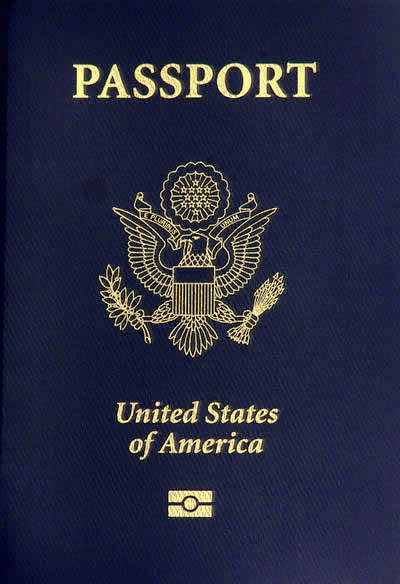Justice Clarence Thomas Cites Professor Gary Lawson’s Paper in Jerusalem Passport Case
Thomas noted Lawson’s interpretation of the ‘Sweeping Clause’ in his opinion on Zivotofsky v. Kerry.

A paper coauthored by Philip S. Beck Professor of Law Gary Lawson, “The ‘Proper’ Scope of Federal Power: A Jurisdictional Interpretation of the Sweeping Clause,” has been cited in Supreme Court Justice Clarence Thomas’s partial concurrence/partial dissent to the recently decided Zivotofsky v. Kerry.
At issue in the case is whether a US citizen born in Jerusalem may list “Israel” as their place of birth on their passport. The US government does not recognize any nation as having sovereignty over Jerusalem; however, Congress passed a law in 2002 that instructed the Secretary of State to allow US citizens born in Jerusalem to list “Israel” as their birthplace upon request.
When President George W. Bush signed the law, he issued a statement objecting to the law, noting that it “interferes with the President’s constitutional authority to conduct the Nation’s foreign affairs.” Lawyers for the government argued that, since only the President has the authority to recognize foreign states, the law infringed on the executive branch’s decision not to recognize Israel’s sovereignty over Jerusalem. However, one of the arguments made by the plaintiffs is that Congress has the authority to regulate passports as an extension of its control over foreign commerce and naturalization.
When, in 2002, the Zitovofsky family applied to have Israel listed on their son’s passport rather than Jerusalem, the US State Department declined, beginning a 13-year legal battle that culminated in the Supreme Court case. Oral arguments were heard in November 2014. On June 8, in a six-to-three decision, the Supreme Court ruled in favor of the executive, and the law was struck down.
In his partial concurrence/partial dissent, Justice Thomas agrees with the majority opinion that Congress may not compel the executive branch to issue a document that runs contrary to official foreign policy. He takes issue, however, with the rationale for that decision, as laid out in Justice Anthony Kennedy’s opinion.
Justice Thomas argues that Congress has no enumerated constitutional power over passports. The passport’s primary function is as a travel document. It has, at best, “a tertiary relationship to an activity Congress is permitted to regulate: it directs the President’s formulation of a document, which, in turn, may be used to facilitate travel, which, in turn, may facilitate foreign commerce.”
Further, Justice Thomas contends that the 2002 law goes beyond the jurisdiction granted to Congress by the ‘Necessary and Proper’ clause (also known as the ‘Sweeping’ Clause) of the Constitution. The clause allows Congress “to make all laws which shall be necessary and proper for carrying into execution the foregoing powers, and all other powers vested by this Constitution in the government of the United States, or in any department or officer thereof.”
Justice Thomas’s interpretation of the Sweeping Clause is one proposed by Professor Lawson and his coauthor, Patricia Granger, in their 1993 paper, published in the Duke Law Review.
The Sweeping Clause, Lawson and Granger note, “is not, nor did the Framers think it to be, a grant of general legislative power. The clause’s language limits its authorizing scope to laws that are ‘necessary and proper’ and that ‘carry into Execution’ powers vested in the national government.”
They go on to argue that “the word ‘proper’ serves a critical, although previously largely unacknowledged, constitutional purpose by requiring executory laws to be peculiarly within Congress’s domain or jurisdiction—that is, by requiring that such laws not usurp or expand the constitutional powers of any federal institutions or infringe on the retained rights of the states or of individuals. … The Sweeping Clause, so construed, serves as a textual guardian of principles of separation of powers, principles of federalism, and unenumerated individual rights.”
The passage of the 2002 law violates what Lawson, Granger, and now Justice Thomas would argue is “proper” Congressional jurisdiction by transgressing the “prerogatives of federal executive or judicial departments.”
Professor Lawson is a noted scholar of constitutional theory, administrative law, and jurisprudence. He has authored six editions of a textbook on administrative law, and co-authored two books on aspects of constitutional history. He is a founding member of the Federalist Society for Law and Public Policy Studies, and is on the editorial advisory board of theHeritage Guide to The Constitution, a reference tool for legal scholars. He twice clerked for Justice Antonin Scalia, first at the Court of Appeals for the District of Columbia Circuit and then at the United States Supreme Court.
